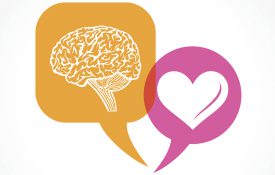-
Never Forget a Face? Women May Remember Faces Better Because They Scan More
Women may remember faces better than men in part because they spend more time studying features without even knowing it, suggests a new study published in Psychological Science, a journal of the Association for Psychological Science. According to the researchers, teaching people to increase feature scanning may be one way to help improve their memory for faces. The findings may help to shed light on long-standing questions about why some people can remember faces easily while others quickly forget the face of someone they’ve just met.
-

Blood Vessels in the Eye Linked With IQ, Cognitive Function
The width of blood vessels in the retina may indicate brain health years before the onset of dementia and other deficits.
-
New Research From Psychological Science
Read about the latest research published in Psychological Science. Vividness of the Future Self Predicts Delinquency Jean-Louis van Gelder, Hal E. Hershfield, and Loran F. Nordgren Does failure to think about the future lead people to engage in delinquent behavior? Participants wrote a letter to themselves either 20 years or 3 months in the future. They were then asked how they would respond to several scenarios involving committing delinquent acts. Participants who wrote letters to a more distant future self made fewer delinquent choices than did those who wrote to a less distant future self.
-

Resiliency May Come at a Physical Cost for Some Kids
Children who overcome overcome adversity are seen as resilient, but this resiliency may have health costs that last well into adulthood.
-
Picking Up a Second Language Is Predicted by Ability to Learn Patterns
Some people seem to pick up a second language with relative ease, while others have a much more difficult time. Now, a new study suggests that learning to understand and read a second language may be driven, at least in part, by our ability to pick up on statistical regularities. The study is published in Psychological Science, a journal of the Association for Psychological Science. Some research suggests that learning a second language draws on capacities that are language-specific, while other research suggests that it reflects a more general capacity for learning patterns.
-

Brain Can Be Trained in Compassion, Study Shows
A study shows that training adults in compassion can result in greater altruistic behavior.

